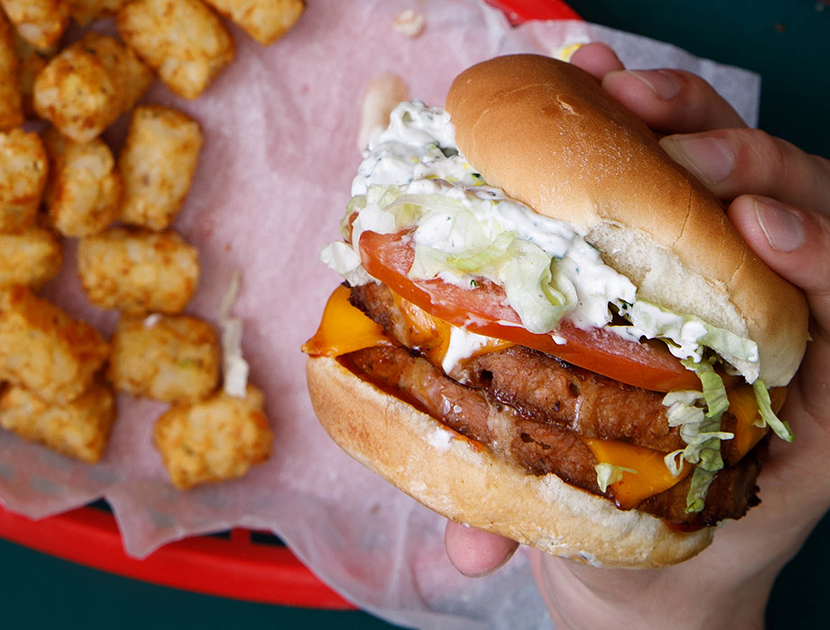4 Mins Read
The ‘Truth in Labeling of Food Products’ Act 273 came into effect in October 2020. It made the use of any terms deemed meat-related, such as ‘burger’ and ‘sausage’ illegal on packaging for vegan products. The act remained in effect when packaging combined ‘meaty’ terms with ‘vegan’ or ‘plant-based’ for clarity. Tofurky launched a lawsuit to challenge the act on the grounds of First Amendment violation.
The Good Food Institute and The Animal League Defense Fund (ALDF) are representing Tofurky. The brand itself is embroiled in multiple suits of this nature, across a number of U.S. states. Tofurky requested a summary judgment in its Louisiana case. Judge Brian A Jackson revealed that he found the act “unconstitutional” and that it “impermissibly restricts commercial speech because the speech at issue is not misleading”. The revelation has been celebrated as a win for common sense and the plant-based industry.

Putting consumers in the firing line
The act was initiated in a bid to prevent consumer confusion. Big meat manufacturers allayed concerns that shoppers could accidentally purchase plant-based meats instead of conventional animal protein, due to similarly labelled packaging. Meat and dairy labelling bills of this nature have been brought into effect in multiple states, with different requirements and restrictions. This has made it difficult for food producers to create nationally compliant packaging.
In Oklahoma, the Meat Consumer Protection Act permits ‘meaty’ words to be used on non-meat products, as long as they are balanced with other qualifiers, such as ‘vegan’. Louisiana takes a zero-tolerance approach, with no alluding to meat allowed at all.
Judge Jackson noted that Tofurky had offered “compelling evidence indicating that consumers are not confused by its labelling” He went on to clarify that the state had failed to offer evidence to the contrary. Tofurky has been identified as having adapted its packaging and marketing campaigns to avoid using prohibited terms.

Afraid of fair competition?
The ALDF states that Act 273 is unjust. “[It is] a clear and unconstitutional attempt to protect the animal agriculture industry from competition amidst the growing market for foods not derived from slaughtered or confined animals, which don’t carry the same risks to human health, animals, and the environment,” Stephen Wells, executive director at the ALDF said in a statement. Judge Jackson’s ruling appears to align with at least the first belief. Notably, he added that the “plaintiff’s speech has been chilled by the Act”.
Tofurky has heralded the ruling as a positive outcome for the global plant-based sector. It also took the notion of trying to dupe consumers to task, stating that its selling point was that it is not animal-based. “For so many of us growing up with an animal-centric diet, meat products serve as the best reference points for consumers, but it’s never been our intention to deceive consumers,” Jaime Athos, CEO of Tofurky told FoodNavigator-USA. “Our value proposition is is because we’re plant-based, that’s why consumers are buying our products.”
The FDA has revealed that it is drafting labelling guidelines for plant-based foods. Due for publication by the end of December this year, it is hoped that such guidelines will offer clarity for all parties concerned.

Racking up plant-based wins
In August last year, the plant-based sector got its first taste of legal success. Miyoko’s Creamery won a first amendment lawsuit in California, allowing it to use conventional dairy terms on its products. Following a temporary injunction against a blanket ban on using terms such as ‘butter’ and ‘lactose-free’, Miyoko’s went on to secure a permanent win that gave confidence to the wider plant-based industry.
Australia’s big meat industry and its burgeoning plant-based sector went tot-to-toe in 2021. The former levelled accusations of misleading packaging stealing consumers away by accident. Senator Susan McDonald, a former butcher, led demands for a ban on ’meaty’ terms being applicable to vegan and plant-based foods. The plea was rejected, with a general consensus feeling that Australians were not confused by packaging.
All photos by Tofurky.




